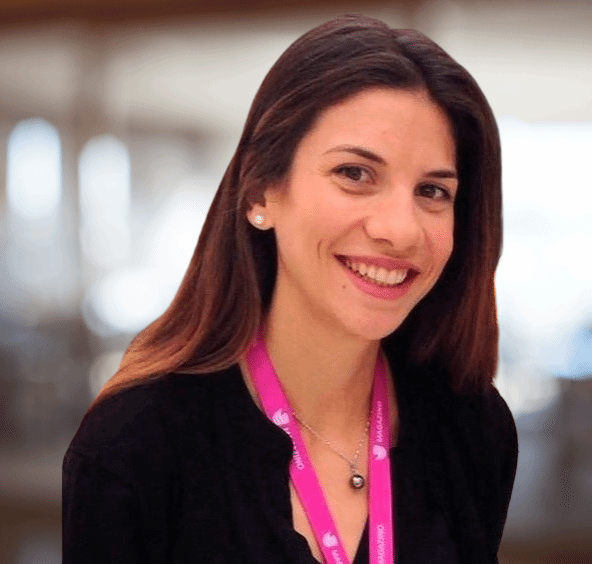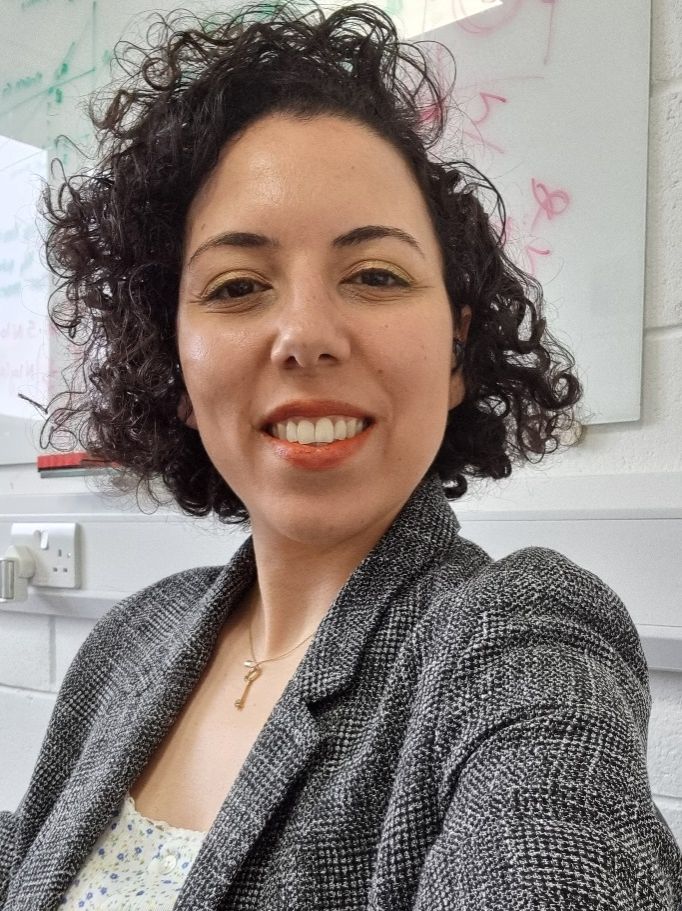西电与英国赫瑞-瓦特大学中英合作办学十周年学术交流报告会
时间: 2025年9月19日上午10:00-12:00
地点:西安电子科技大学北校区主楼II区219会议室
报告人:1. 英国赫瑞-瓦特大学Maria Koskinopoulou 助理教授
2. 英国赫瑞-瓦特大学Arwa Dabbech助理教授

Dr. Maria Koskinopoulou,an Assistant Professor in Robotics and Computer Vision at the Institute of Signals, Sensors, and Systems (ISSS) within the School of Engineering & Physical Sciences (EPS) at Heriot-Watt University, Edinburgh, UK
时间: 2025年9月19日上午10:00-11:00
地点:西安电子科技大学北校区主楼II区219会议室
报告题目: Exploring Robotics: From Vision-Guided Manipulation to Precision Surgery with Smart Needle Insertion
摘要: This talk will begin with a brief overview of diverse robotics research conducted across our group, spanning underwater exploration, mobile platforms, Human-Robot interaction, autonomous manufacturing, and advanced manipulation, to highlight the breadth of innovation driving the field, and will continue with a focus on robotic surgery. Precise needle insertion is a cornerstone of robotic surgery, particularly for minimally invasive procedures that demand exceptional accuracy, control, and adaptability within complex anatomical environments. Vision-guided robotic manipulation offers a promising solution by integrating Computer Vision, Artificial Intelligence, and multimodal sensing to achieve precise needle targeting, real-time feedback, and adaptive control. This talk will delve into recent advancements in robotic needle insertion systems, with a focus on how these technologies enable ultrasound-guided precise needle injection systems targeting for challenging procedures, including peripheral and cardiac intravenous access, and pleural effusion treatment. We will present the latest results and innovations that are enhancing precision and autonomy in needle injection applications, ultimately advancing the capabilities of robotic-assisted interventions.
Bio. Dr. Maria Koskinopoulou is an Assistant Professor in Robotics and Computer Vision at the Institute of Signals, Sensors, and Systems (ISSS) within the School of Engineering & Physical Sciences (EPS) at Heriot-Watt University, Edinburgh, UK. She co-leads the ARM²Lab – Autonomous Robotic Manipulation & Multi-Agent Systems Lab at Heriot-Watt and the National Robotarium alongside Ignacio Carlucho, overseeing more than 20 PhD students and postdoctoral researchers. Additionally, she is an active member of the renowned Ocean Systems Lab, led by Yvan Petillot. She is extensively involved in major UKRI and EU-funded research projects, including HUME and the Leonardo Prosperity Partnership, advancing robotic manipulation, surgical and underwater robotics, autonomous assembly, and waste sorting. She is also Co-Director of the EPSRC Centre for Doctoral Training in Dependable and Deployable Artificial Intelligence for Robotics (CDT-D2AIR) and Deputy PGR Coordinator within the School of Engineering and Physical Sciences. Before joining Heriot-Watt, she was a Postdoctoral Fellow at the Biomedical Robotics Lab at the Italian Institute of Technology (IIT) in Genoa, where she worked on robotic systems for medical applications. She also gained industry experience during an internship at ABB Corporate Research Center in Västerås, Sweden, where she developed solutions for dual-arm robotic manipulation of fragile objects. She holds a Meng in Electrical and Computer Engineering, an MSc in Computational Neuroscience, and a PhD in Robotics and Computer Science from the University of Crete (2020). Her research interests include Robotic Manipulation, Perception, Robot Vision, Medical Robotics, Human-Robot Interaction, and Machine Learning.

Dr. Arwa Dabbech, an Assistant Professor of Computational Imaging at the Institute of Sensors Signals and Systems (ISSS), Heriot-Watt University (HWU; UK)
时间: 2025年9月19日上午11:00-12:00
地点:西安电子科技大学北校区主楼II区219会议室
报告题目: Computational imaging in radio astronomy: from optimisation theory to AI
摘要: Mapping the radio sky with modern telescopes entails solving challenging inverse problems to form high-resolution, high-dynamic range images from large data volumes. This talk provides an overview of modern image reconstruction algorithms, from optimisation theory to deep learning, which have shown superior imaging precision to CLEAN. These include proximal algorithms with handcrafted regularisation, plug-and-play algorithms using learned denoisers, and the recent R2D2 paradigm, which can be understood as a learned version of CLEAN. R2D2 not only improves imaging precision but also accelerates reconstruction, enabling fast, high-resolution, high-dynamic range imaging in radio astronomy.”
Bio. Dr. Arwa Dabbech is an Assistant Professor of Computational Imaging at the Institute of Sensors Signals and Systems (ISSS), Heriot-Watt University (HWU; UK), and an active member of the Biomedical and Astronomical Signal Processing (BASP) Laboratory. Having joined HWU as a Research Associate in 2015, she was later appointed as Assistant Professor in 2023. She holds a Diplôme National d’Ingénieur-equivalent to a Masters in Engineering- from École Polytechnique de Tunisie (Tunisia), and a PhD in Imaging Techniques for Astronomy from Observatoire de la Côte d’Azur (France). Her research pushes the boundaries of large-scale astronomical imaging by intersecting optimisation theory, deep learning, and high-performance computing to address the computational challenges posed by next-generation instruments, such as the Square Kilometre Array (SKA). She is the global course leader of the undergraduate course Signals and Systems at HWU.





 陕公网安备61019002002681号
陕公网安备61019002002681号